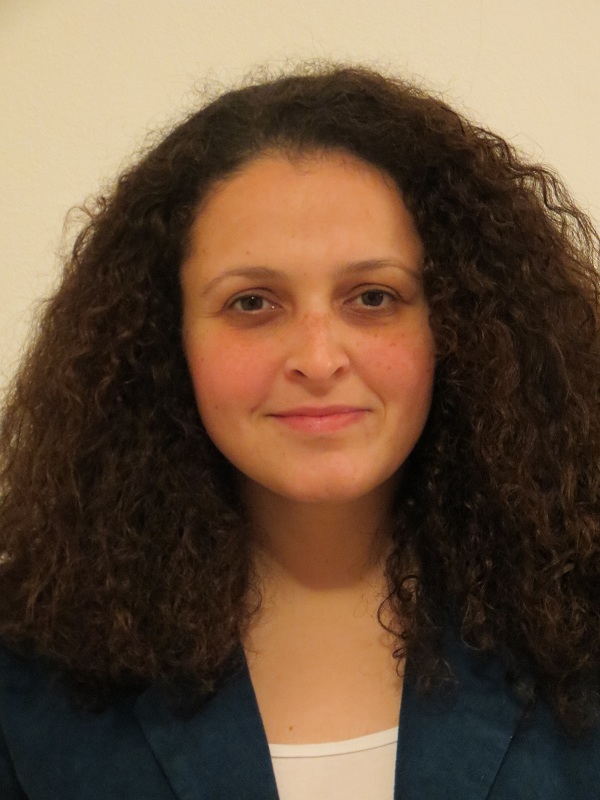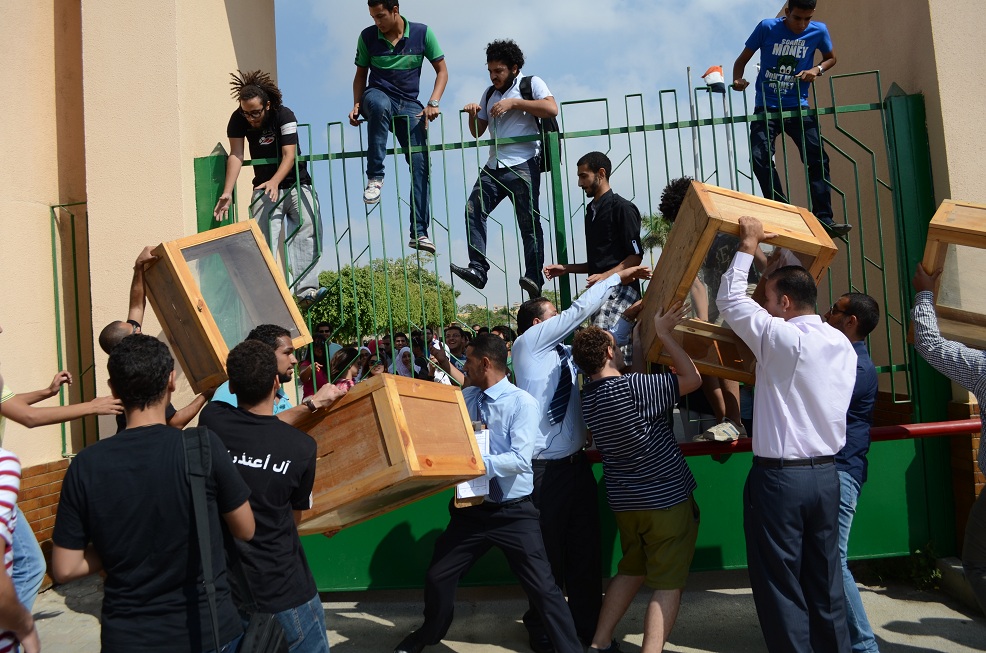The detention of amateur photojournalist Esraa El-Taweel, accused of spreading false news and belonging to the outlawed Muslim Brotherhood, was renewed on Monday, after spending 57 days in police custody, according to Al-Marsad student observatory.
She was originally arrested at the beginning of June, with her family, lawyers, as well as human rights activists arguing she was “kidnapped” by police and sent for interrogation in the Homeland Security Apparatus headquarters in Cairo.
El-Taweel appeared in the Al-Qanater women’s prison after having disappeared for over two weeks at the beginning of June. Her case was amongst a wave of disappearances that saw numerous individuals, with connections to revolutionary or Islamist politics, taken illegally by security forces.
A spokesperson for the anti-government Students Against the Coup movement told Daily News Egypt Tuesday that El-Taweel is not an official member; however they are following the case and giving it attention. The spokesperson, who preferred to remain anonymous for security reasons, said that “her arrest is no different than from other female activists or protesters. We are committed to pressuring and resisting the coup forces to release all female political prisoners.”
He added that “she is lucky she is famous online, while there are hundreds of other detainees who are facing unjustified charges or forced disappearance”.
El-Taweel’s lawyer previously told Daily News Egypt that upon her arrest, she spent the first 15 days not knowing where she is, without any legal grounds for her detention.
On 1 June, El-Taweel and two friends, Omar Ali and Sohaib Saad Al-Haddad, were taken while they were having dinner in Maadi. It has been reported that Ali is at Al-Aqrab Prison and Al-Haddad is at Tora Prison.
El-Taweel’s sister and lawyers asserted that Esraa suffers from an injury in her leg and requires physiotherapy.
During the second anniversary of the 25 January Revolution in 2013, El-Taweel was struck by a bullet hitting her leg and spine while taking photos during a protest. She was bedridden for five months and used a wheelchair for six months. She recently began to use a crutch, according to family members.
A Ministry of Interior spokesperson previously denied that the police forcibly takes individuals in this manner, also telling Daily News Egypt that Egypt’s police forces are currently not targeting young people, regardless of their political stances and positions.
More individuals are believed to be abducted by security forces in a wave of disappearances since the start of June, as reports by activists and family members are published online.
Egypt’s penal code itself prohibits detaining individuals for longer than 24 hours without raising charges, while a judge is allowed to prolong the detention only after four days of the arrest.
However, in its latest report on Egypt, Human Rights Watch (HRW) lists several cases of alleged forced disappearances, accusing Egyptian security forces of being involved in conducting illegal detentions.
On different occasions, President Abdel Fattah Al-Sisi asserted that amid the current counter-insurgency, “mistakes can take place” and uninvolved individuals can get arrested. He also clarified that he requested that the Ministry of Interior and the prosecution revisit the lists of arrested students, to make sure anyone innocent is released.
On 13 July he issued a decree ordering the release of some prisoners on the occasions of Eid Al-Fitr and the anniversary of the 23 July 1952 Egyptian revolution. However, the majority of the pardoned do not include imprisoned women, high profile activists or journalists.


